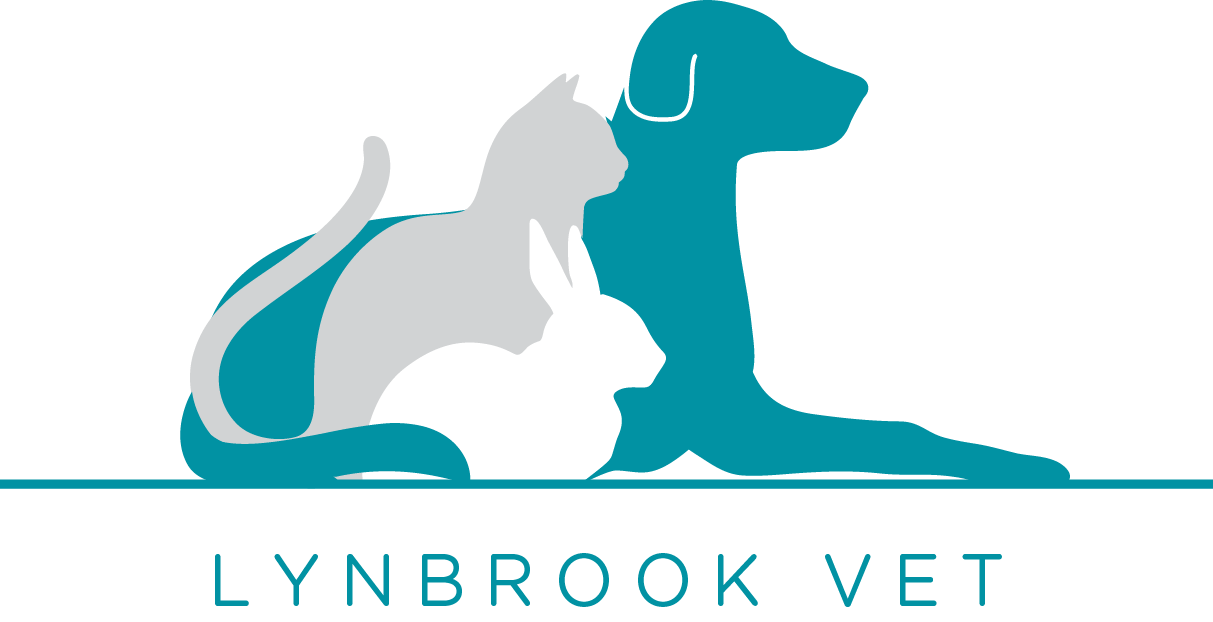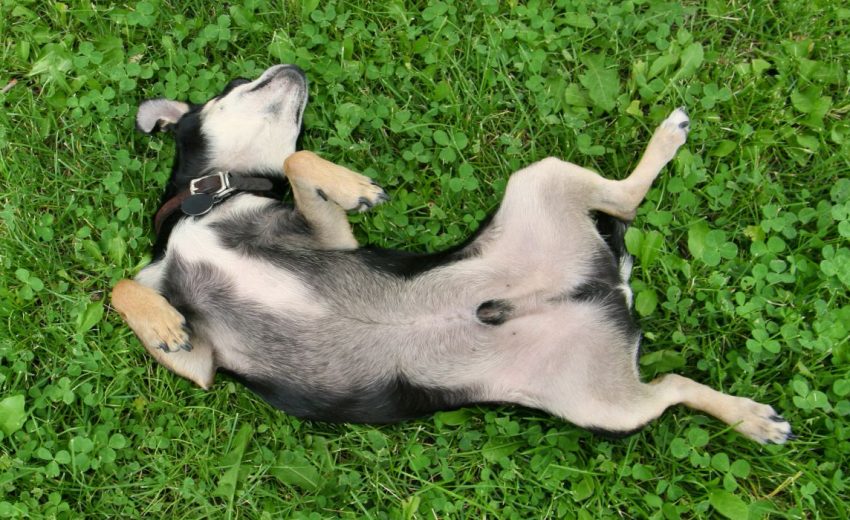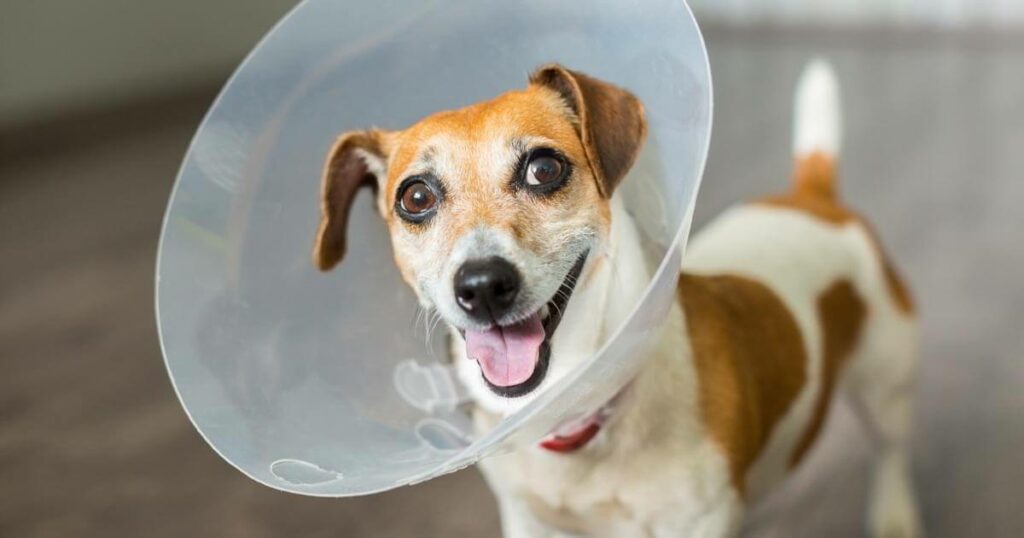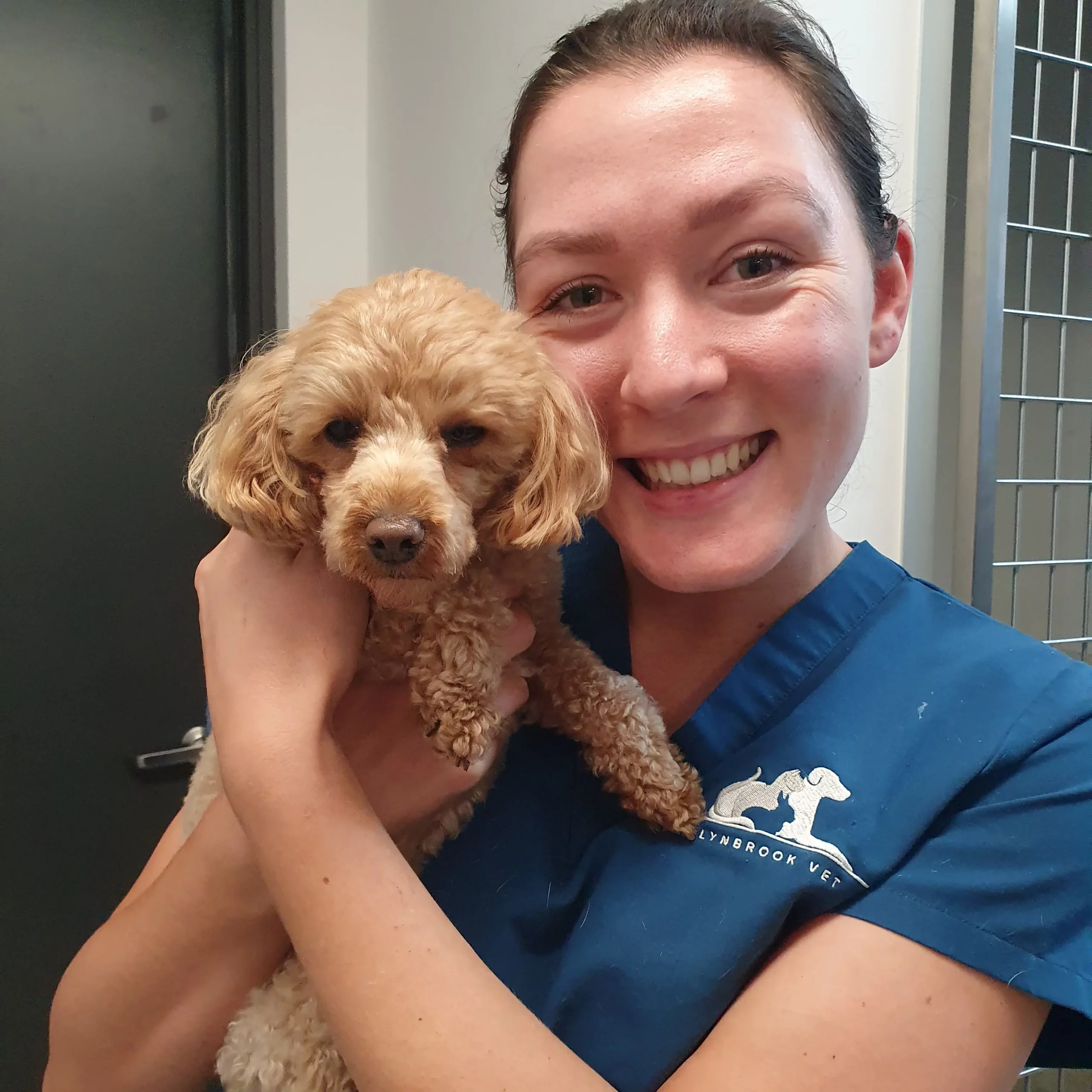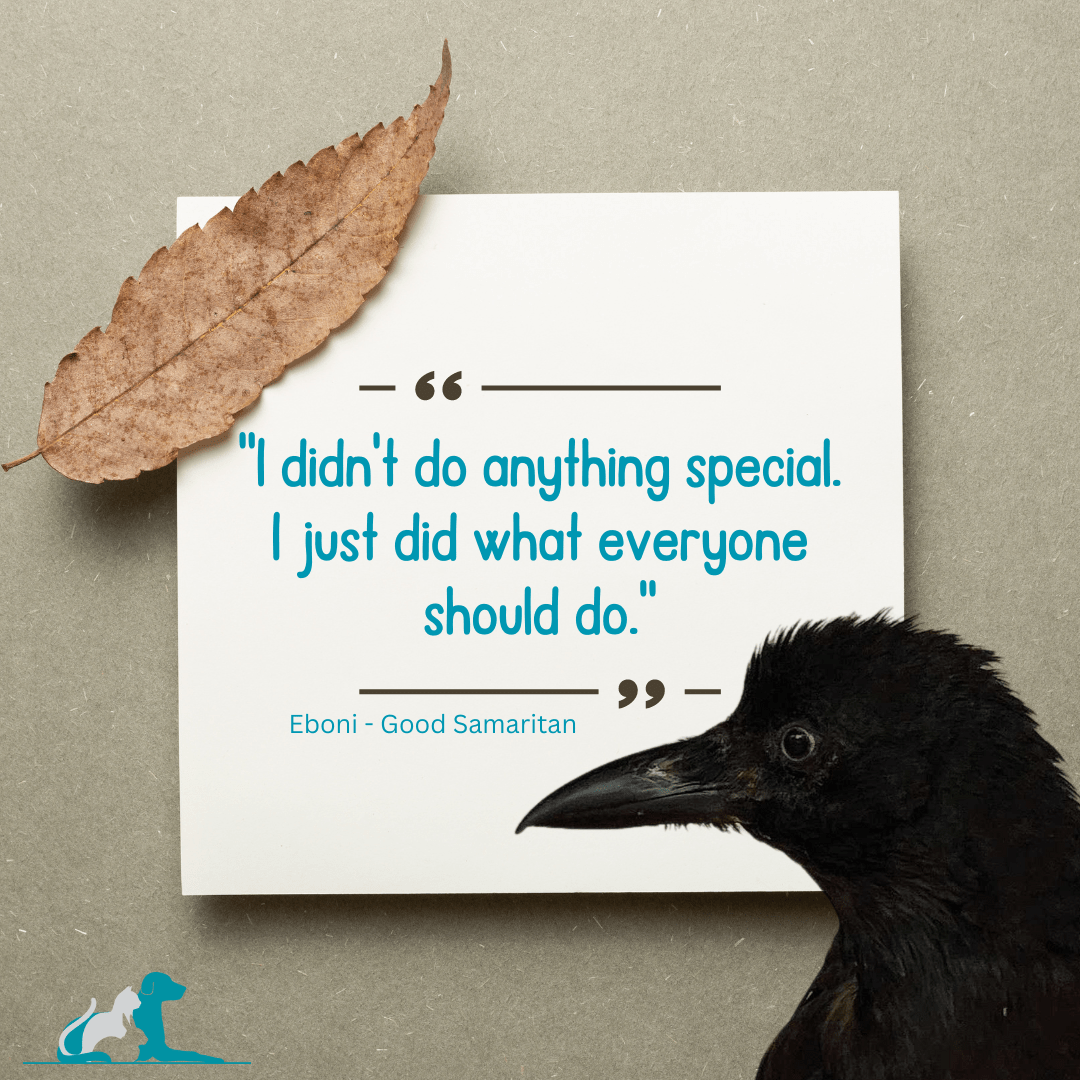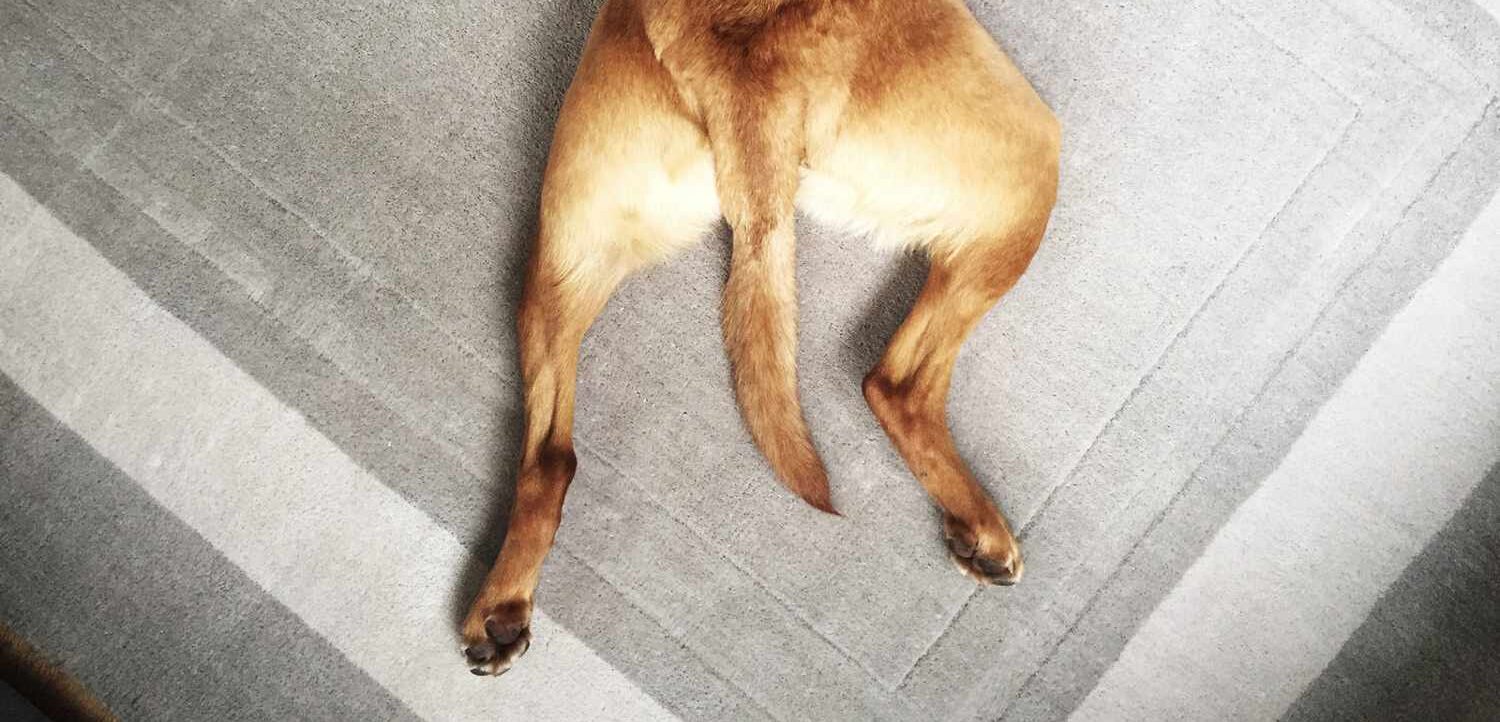If you’re concerned your dog may have Canine Cryptorchidism here is all the information you’ll need to make a decision about what steps you’ll to take next to keep him safe and healthy.
What is Canine Cryptorchidism?
Canine Cryptorchidism refers to the failure of one or both testicles to descend into the scrotum of a dog.
Testes develop near the kidneys, within the abdomen and typically descend into the scrotum by two months of age. However, if after six months of age, the teste(s) still have not dropped, you should take your dog for a check-up. In the unlikely (quite rare) condition of Canine Cryptorchidism it’s highly unlikely to correct itself. Approximately 75% of cryptorchid dogs have only one retained testicle while the remaining 25% have both testicles retained.
If the testicles aren’t in the scrotum, where are they?
In most cases of Canine Cryptorchidism, the testicle is retained in the abdomen or in the inguinal canal (the passage through the abdominal wall into the genital region through which a testicle normally descends). Sometimes the testicle will be located just under the skin in the groin region.
What causes Canine Cryptorchidism?
The exact cause of Canine Cryptorchidism is unknown; however, it is theorized that this condition is genetic in nature.
Male puppies are prone to cryptorchidism if their biological father also suffered from the same condition. Therefore, it is not recommended to breed cryptorchid dogs.
Inguinal (left)
Scrotal / Normal (Right)
Abdominal (top)
Scrotal / Normal (Bottom)
What breeds can be affected by Canine Cryptorchidism?
Cryptorchidism can occur in all breeds including Bulldogs, Collies, Schnauzers, Huskies etc however, toy breeds such as Poodles, Pomeranians, Chihuahuas and Yorkshire Terriers are often at a higher risk.
The signs of Canine Cryptorchidism
This condition is rarely associated with symptoms unless a complication develops. In its early stages, a single retained testicle is significantly smaller than the other normal testicle, as you can see from the image examples above.
If both testicles are retained, the dog may be infertile as the testicles generally fail to produce sperm, but will continue to produce testosterone.
How do Vets Diagnose Canine Cryptorchidism?
Cryptorchidism is generally diagnosed following a physical exam, but a family history can assist with a diagnosis.
A vet will check the scrotal sac of a male dog and feel its contents to ensure there is no swelling and that both testicles are present.
If the testicle(s) are not palpable in the sac, the vet will palpate the rest of abdomen and the area near the groin to determine if they can find the missing testicle(s).
Sometimes, in cases of abdominal cryptorchidism, a testicle cannot be felt from the outside. In these circumstances, an abdominal ultrasound, x-rays or sometimes an exploratory surgery may be performed to locate the testicle. This is often followed by desexing (removal of the testicles).
Is my dog at risk if his testicles don’t drop?
Medically there are a number of concerns vets may have if your dog’s testicle(s) don’t descend.
Some concerns include:
- Testicular Torsion– This refers to the self-twisting of the testicles. In the scrotum the testicles are fairly well anchored, and the chance of self-twisting is slim, however, in the abdomen, there is much more space and they may twist on themselves causing obstruction to blood flow. This can be painful and life threatening.
- Cancers– Testicular tissue can become cancerous over time regardless of the testicle’s location (sac, groin or abdomen). The risk of cancer is increased in cryptorchid dogs.
- Hormone production– The internal testicle may make too much female hormone and result in ‘Male Feminisation Syndrome’ which results in female traits such as enlarged breasts. Other dogs may do the opposite and produce excessive amounts of male hormone which can lead to prostate disease and anal gland disease.
- Behavioural issues – Some behavioural issues can be associated with excess hormone production. This can vary between excessive aggression, being attractive to male dogs, urine marking and so on.
How do you fix canine cryptorchidism?
Surgery (also known as neutering, desexing or castration) is the safest way to fix cryptorchidism.
The surgery involves the removal of both testicles under general anaesthetic.
In normal dog’s whose testicles are both descended into the scrotum, desexing is a routine surgery where both testicles are removed via single incision. In a cryptorchid dog, the misplaced testicle is removed in a similar procedure however these dog’s often have multiple incision sites as access to the retained testicle may be made through an incision in the groin area or through the abdominal wall instead, depending on the retained testicle’s location.
Surgery can be complicated because the undescended testicle must be located first and they are often much smaller in size. Locating the retained testicle may be done using ultrasound, x-rays, or exploratory surgery (a procedure which involves opening the abdominal cavity where the surgeon inspects various areas of abdomen for the retained testicle, as the location of the undescended testicle can be anywhere in the area between the scrotum and the kidneys.
What is the recovery and management like after surgery of a cryptorchid dog?
After the procedure, recovery typically takes 10-14 days.
It is beneficial to limit the dog’s activity to aid in the reduction of swelling as much as possible. Dogs may wear an Elizabethan collar or cone to prevent them from licking their surgery site which needs to remain clean and dry.
The incision site should be checked daily for swelling or redness and the scrotal sac monitored for any swelling or bruising.
If you’re looking for a local vet that cares, we can help support you and your dog, or pet, throughout their life. Book an appointment online today.
What causes Canine Cryptorchidism?
The exact cause of Canine Cryptorchidism is unknown; however, it is theorized that this condition is genetic in nature.
What breeds can be affected by Canine Cryptorchidism?
It can occur in all breeds including Bulldogs, Collies, Schnauzers, Huskies etc however, toy breeds such as Poodles, Pomeranians, Chihuahuas and Yorkshire Terriers are often at a higher risk.
What are the signs of Canine Cryptorchidism
This condition is rarely associated with symptoms unless a complication develops. In its early stages, a single retained testicle is significantly smaller than the other normal testicle.
How do Vets Diagnose Canine Cryptorchidism?
Cryptorchidism is generally diagnosed following a physical exam, but a family history can assist with a diagnosis.
Sometimes an abdominal ultrasound, x-ray or exploratory surgery may be performed to locate the testicle.
Is my dog at risk from canine cryptorchidism if his testicles don’t drop?
Medically there are a number of concerns vets may have if your dog’s testicle(s) don’t descend, including Testicular Torsion, Cancers, Hormone production and Behavioural issues.
How do you fix canine cryptorchidism?
Surgery (also known as neutering, desexing or castration) is the safest way to fix cryptorchidism.
What is the recovery and management like after surgery of a cryptorchid dog?
After the procedure, recovery typically takes 10-14 days. The dog should wear a protective collar and the incision site should be checked daily.
